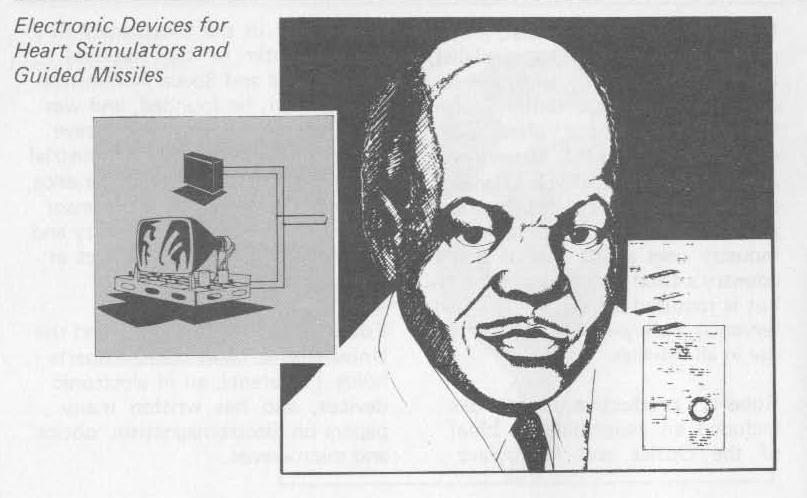Otis Boykin’s work on improved electrical resistors made possible the steady workings of a wide variety of electrical devices.
Variations of his resistor technologies are used in televisions, radios, computers, pacemakers, and guided missiles, according to the National Inventors Hall of Fame.
Today, a lot of utilities used in homes and offices around the globe have components derived from the African American inventor Otis Boykin.
Despite being black at an era of racial segregation and unable to complete his study, Black Inventor noted that Otis received his first patent in 1959 for a wire resistor that allowed a precise amount of electricity to flow to a component.
“Two year later, he created an even better resistor that could be manufactured inexpensively and withstand extreme temperature changes and shock. A low-cost product that was more reliable, the invention brought Otis Boykin to the forefront of American electronics,” Black Inventor wrote.
His version of his resistor was used in the invention of the pacemaker, a device which keeps the heart beating regularly through electronic pulses. His invention has helped to extend the lives of hundreds of thousands of individuals.

Born on August 29, 1920, in Dallas, Texas, Boykin was reported to have lost his mother to heart failure at the age of one. This, according to the National Society of Black Physicists, inspired him to make the pacemaker.
Boykin’s education commenced at the Booker T. Washington High School in Dallas. He went on to Fisk University on a scholarship and also worked as a laboratory assistant at the university’s aerospace laboratory.
He furthered his education at Illinois Institute of Technology but couldn’t graduate, which some sources have attributed to financial constrain.
But the National Society of Black Physicists (NSBP), in its report honouring him in February 2019, said he later stated that he left for an employment opportunity and did not have time to return to finish his degree.
He was discovered and mentored by
Apart from Boykin’s most famous invention – the pacemaker device – he also invented a variable resistor used in guided missiles.

According to MIT, he “created an electrical capacitor in 1965 and an electrical resistance capacitor in 1967, as well as a number of electrical resistance elements.” Boykin also created consumer innovations, including a “burglar-proof cash register and a chemical air filter.”
Stated as one of the talented inventors of the 20th century in his biography, Boykin continued to introduce many inventions throughout his life whilst working in the United States and in Paris from 1964 to 1982 as a consultant until he also died of heart failure in 1982.
He later received quite a number of patents and earned the Cultural Science Achievement Award for his progressive work in the medical field.










